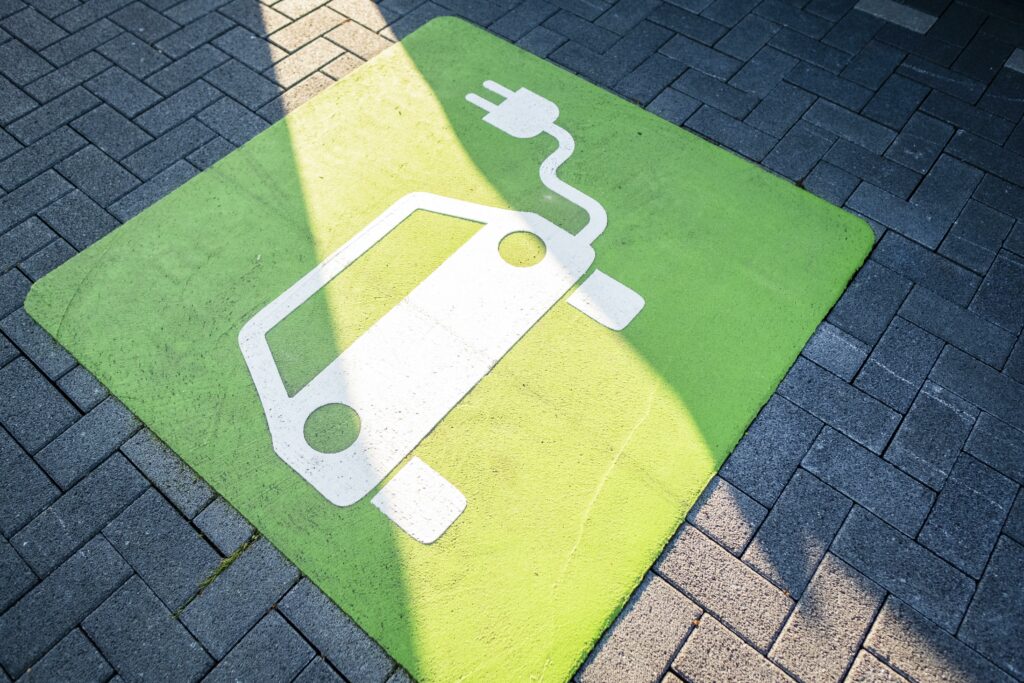July’s global EV registrations highlight rise of the small electric car
14 September 2023

As the automotive market’s electrification continues, July saw several smaller electric vehicles (EVs) climb the registrations table. José Pontes, data director at EV-volumes.com (part of Autovista Group), explains the figures.
Global plug-in vehicle registrations increased by 41% in July 2023, rising to 1,104,00 units. In the end, these EVs represented 16% of the overall automotive market, with battery-electric vehicles (BEVs) alone accounting for 11% of total sales.
This means that the global automotive market is firmly in the ‘electric disruption zone’. When taking into account the almost 900,000 units coming from standard hybrid models, a quarter of global automotive registrations feature some form of electrification.
BEVs represented 69% of the plug-in market during July, keeping their year-to-date domination of this sector intact, with 70% of deliveries. In the overall market, during the first seven months of the year, the plug-in market share was stable at 15%, with BEVs alone holding 10%.
The best-selling EVs in the world
The Tesla Model Y was the best-selling EV in July, high above its competitors. It was a record first month of a quarter for the carmaker, which usually pushes most of its deliveries to the end of the quarterly period. A record performance could be expected by the end of September.
Behind the Model Y, the Tesla Model 3 lost out to BYD’s Song and Qin Plus models, mainly due to Tesla’s off-peak month. However, with refreshed Model 3 deliveries beginning in a couple of months, the US sedan could start to build back towards the Chinese models.
BYD’s real highlights were the Dolphin in fifth and the Seagull in seventh. The Dolphin benefitted from the start of exports and hit a record registration total of 31,968 units. The Seagull is rapidly ramping up production, having reached 28,001 registrations in only its fourth full month on the market.
It is still too early to say how high these models will get in the table, but both have the potential to break into the top three. Meanwhile, the Seagull could even challenge the Tesla Model Y if its production and uptake levels continue on their current trajectories.
There was another record performance in the top half of the table, with the Wuling Bingo scoring 19,782 registrations to secure the 10th spot. It looks like the small EV is becoming a success story for the SGMW joint venture between SAIC and GM, although there are no export plans currently in place for the model, which could hamper its popularity.
Elsewhere, another city car highlighted the emerging small EV trend. The Changan Lumin took 14th place thanks to a record 15,282 registrations, likely inspired by a recent model refresh. The 16th-place Volkswagen (VW) ID.3 had a year-best result with 13,388 registrations, thanks to the German marque’s Chinese operations. The model benefitted from a significant price cut, allowing it to jump into record territory.
Another record was set by the 15th-place Li Auto L7 with 13,389 registrations. The large SUV has been in record territory ever since it landed in January, so it seems a production ramp up is still ongoing. Should this continue, the model could climb even higher up the table, and may threaten the BYD Han, the current leader in the full-size category.
The midsized BYD Destroyer 05 was in 18th with 11,994 registrations. The seven-seat Li Auto L8 SUV reached 19th with 11,315 registrations, and the 20th-place Hyundai Ioniq 5 also pulled a record result with 11,261 registrations. Interestingly, apart from the VW ID models, the Hyundai EV was the only other model in the top 20 coming from a legacy OEM.
Records across the table
There was plenty of action outside the top 20 table as well. Going from the biggest vehicles to the smallest, the Li Auto L9 had a year-best result of 9,425 units. Adding this to the record results of the brand’s two other models means Li Auto’s machine is firing on all cylinders. Everything it makes is already sold, something no other OEM can claim.
In the midsize category, the highlight was the record performance of the NIO ES6. Thanks to the new generation model, it reached a record 10,252 registrations. This is the first time a NIO vehicle has crossed 10,000 units in a single month, providing the startup with some needed volume.
The Kia EV6 reached 9,095 registrations, all in the same month that its cousin, the Hyundai Ioniq 5, also had a record month. This may suggest that the Korean OEM is increasing the production rate of its E-GMP models. This could be timely as the Hyundai Ioniq 6 is still ramping up. The Kia EV9 large SUV is also about to start exports and the promising Kia EV5 looks to land with much fanfare later this year, providing the carmaker group with an exciting few months ahead.
Still in the midsize category, Changan’s Deepal/Shenlan S7 midsize SUV is starting to show on the radar, having reached 7,704 registrations. Changan’s Model Y/Song fighter is looking to reach a top 20 position soon.
As for the compact category, the value-for-money Skoda Enyaq scored a record 7,352 registrations this month, thanks to the clearance of production constraints. Elsewhere in the VW Group stable, the Audi Q4 e-Tron scored a near-record 8,729 registrations, highlighting the current strength of the platform.
Tesla holds firm in the year to date
In the year-to-date table, the Tesla Model 3 resisted the advances from the BYD Song in the first seven months of the year, allowing the carmaker to keep first and second positions, with the Model Y holding on above the Chinese models, despite its poorer showing in July.
The first position change happened in seventh place, with the GAC Aion S sedan surpassing the Wuling Mini EV. The latter seemed to suffer due to competition from other budget EVs, such as Geely’s Panda Mini EV. It is also struggling against newer, more chic and cheerful small EVs, like the BYD Seagull and Wuling Bingo. For not a lot more money, these vehicles offer a very different driving experience.
The only models climbing the year-to-date table in July were small-to-compact EVs, which may indicate smaller and more efficient models will play a leading role in a future BEV-based automotive market.
Notable movements amongst these smaller models were the two-position jump of the Wuling Bingo and Changan Lumin, to 13th and 14th respectively. There was the rise of the VW ID.3 to 16th, and the appearance of the BYD Seagull in 18th place.
BYD keeps the brand crown
BYD continued its record streak in the brand table in July, thanks to a 250,000-unit global performance. This was effectively double Tesla’s monthly result. However, as July is the start of a quarter, Tesla can be very pleased with its result, and it sets the brand up for a potentially record-breaking quarter.
Below the top two, which have dominated the EV market for some time, the SGMW joint venture ended the month in third, banking on the Wuling Bingo’s success to narrowly beat VW. Not far from these two was fifth-placed GAC Aion, with 42,652 registrations. The brand is looking for more success with its Hyper GT full-size sedan, planning to push into the top three in 2023.
Seventh-placed Li Auto is going from strength to strength, achieving another record month, its fourth in a row. The marque had over 34,000 registrations, thanks to strong results across its line-up. With the startup brand still supply constrained, expectations are that the high-end carmaker will continue to beat records regularly in the near future, especially with the new L6 and L5 midsized models launching next year.
The middle of the table saw Kia (10th with 27,356 registrations) and Hyundai (12th with 24,849 registrations) scored record results. This was thanks to good performances from the Ioniq 5 and Ioniq 6 in the case of Hyundai, and the Niro, EV6, and EV9 (for now, only in Korea) in the case of Kia.
But one of the biggest surprises of the month came from NIO, with 19,096 registrations, helping it take 16th place. This was thanks to surging deliveries of the ES6 SUV and another solid result from the ET5.
Outside the top 20, one highlight was 22nd-place XPeng, with 11,143 registrations, a new best for 2023. The EV startup benefitted from the refresh of the P7 sedan, as well as the first volume deliveries of its G6 crossover, its interpretation of the Tesla Model Y formula.
Finally, BYD’s premium Denza brand is starting to gain recognition. It had another record performance, 11,116 registrations, putting it 23rd on the table. With the N7 crossover and N8 SUV starting volume deliveries soon, Denza is likely to start showing up in the top 20.
No changes in top two
In the year-to-date table, there were no changes in the top two. BYD sits ahead of Tesla, with the two brands jointly responsible for more than a third of the global EV market.
Far below, BMW is trying to keep hold of third place. GAC Aion is fewer than 3,000 units away and fifth-placed VW is not that far off either, just a little over 4,000 units behind. An entertaining race between these three can be expected over the rest of the year, with each brand having an opportunity to push ahead.
Li Auto’s rise has been paused, with the carmaker staying in seventh, but the Chinese company is working to shorten the gap between it and sixth-place Mercedes-Benz. The first position change in July’s year-to-date chart happened in ninth, as Changan switched positions with Volvo thanks to strong results from the Lumin and Deepal S7.
In the second half of the table, the highlight was Kia, which switched places with stablemate Hyundai to reach 12th. Finally, at the bottom of the table, NIO has returned to the top 20 thanks to July’s record performance, and it can be expected to stay in the charts for a while as it looks to build on this performance over the remainder of the year.
Stable performances by groups
Looking at registrations by OEM, with all brands grouped under their parent companies, BYD gained share as it remained in the lead, going from 21.4% to its current 21.8%, while Tesla was down to a 14.5% share.
VW Group took third with a 7.4% share, keeping a good distance from fourth-placed Geely–Volvo, which currently has 6.1% of the market. The recent success of the Wuling Bingo allowed SAIC to start recovering share, with the Chinese carmaker sitting in fifth, thanks to a 0.1% share increase to end the month at 5.6%.
Below them, Stellantis (4.7%, down from 4.8%) is firmly in the sixth, a comfortable distance ahead of BMW Group and Hyundai–Kia, both with 4.2%.
Finally, when taking just BEVs into account, Tesla remained in the lead with 20.9%, down from 21.8% in June. The US brand has secured a comfortable lead over BYD (15.6%, up from 15.1%), making it unlikely that the Chinese group will be able to remove Tesla from the BEV top spot this year.
In third, Volkswagen Group (7.8%) gained ground over SAIC (7.7%), and Geely–Volvo was fifth with 5.7%, down from 5.8%. While the Chinese OEM would like to reach third place, it still has some way to go and should be wary of sixth-place GAC, which is close behind with a 5.5% market share, up from 5.4% in June.



